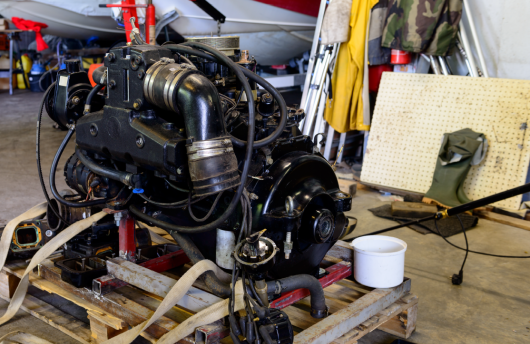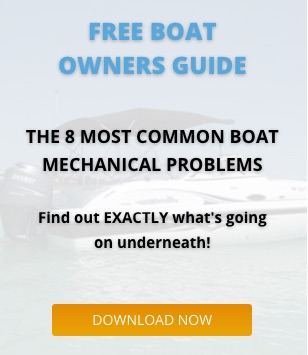Cylinder heads are essential to the proper running and good performance of your marine engine. If a cylinder head cracks while the engine is running, it can cause catastrophic damage to the engine itself.
When do I need to replace a cylinder head?
Cylinder heads need to be replaced when corrosion or damage is detected in the head – either will weaken the head and eventually lead to cracks forming.
What’s the difference between reconditioning and new?
The first difference that most people notice about reconditioned cylinder heads versus new is the price. You’re looking at around $2,000 to buy a new cylinder head for a marine engine, or about $500 for reconditioned. That’s a significant difference in price, but it can also make a significant difference in the life of the cylinder head and engine.
How is a cylinder head reconditioned?
The mechanic will strip out the head’s componentry – valves, valve springs – and then put the head through a chemical wash to remove corrosion. They’ll run a pressure test and crack test to ensure that it’s still sound, then regrind the valves and valve seats. Then the mechanic will put the whole thing back together and check that it’s been prepared correctly.
What are the implications of using a reconditioned cylinder head?
There are a few issues around using reconditioned cylinder heads. For a start, while reconditioners perform crack and pressure tests on the heads, they can’t test or guarantee the thickness of the head’s walls or check for corrosion without performing expensive metal x-rays. This issue is exacerbated by the fact that heads tend to vary in weight anyway – when they’re cast, the mould is destroyed, meaning that every head has a different mould and is unique. This means that reconditioned cylinder heads have an indeterminate life span, especially if the head was older when reconditioned.
If reconditioning hasn’t been performed exactly right, then you can end up with performance issues in the engine. If valves are improperly aligned, they won’t close properly. You’ll tend to need a higher throttle position to get the engine started, use more fuel, and get sub-standard results from the engine.
Which should I choose?
The most important factor in whether you choose reconditioned or new cylinder heads should be the age of the engine. The older it is, the greater chance of corrosion in the heads. We typically recommend that if your boat engine is more than ten years old, you replace cylinder heads rather than getting us to recondition them. If you’re unsure which option you should be going for, though, come in and have a chat to Charles, our Operations Manager. He has 30 years of experience in the industry, and he’s seen huge numbers of cylinder heads in his time – he can give you an expert opinion.



